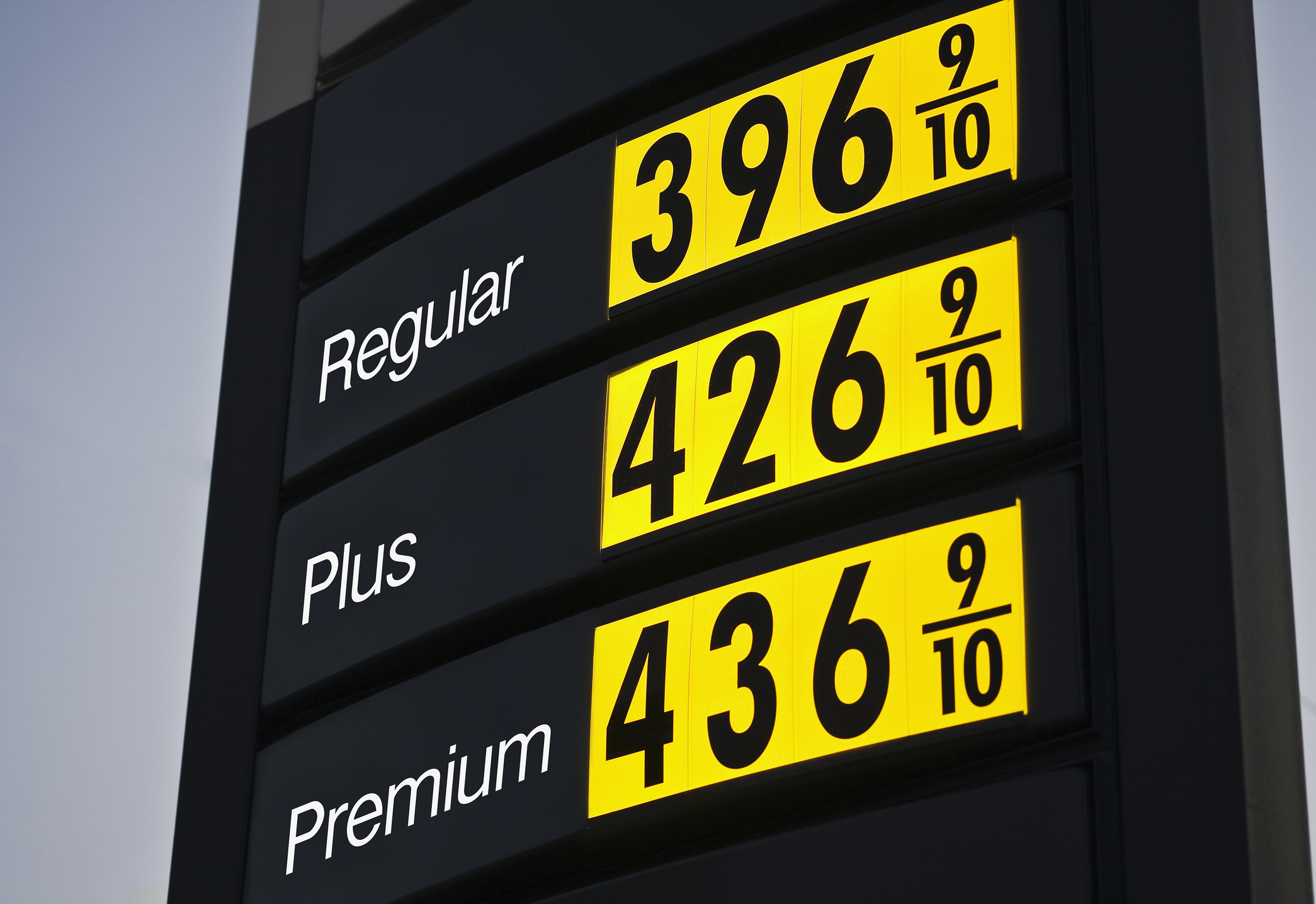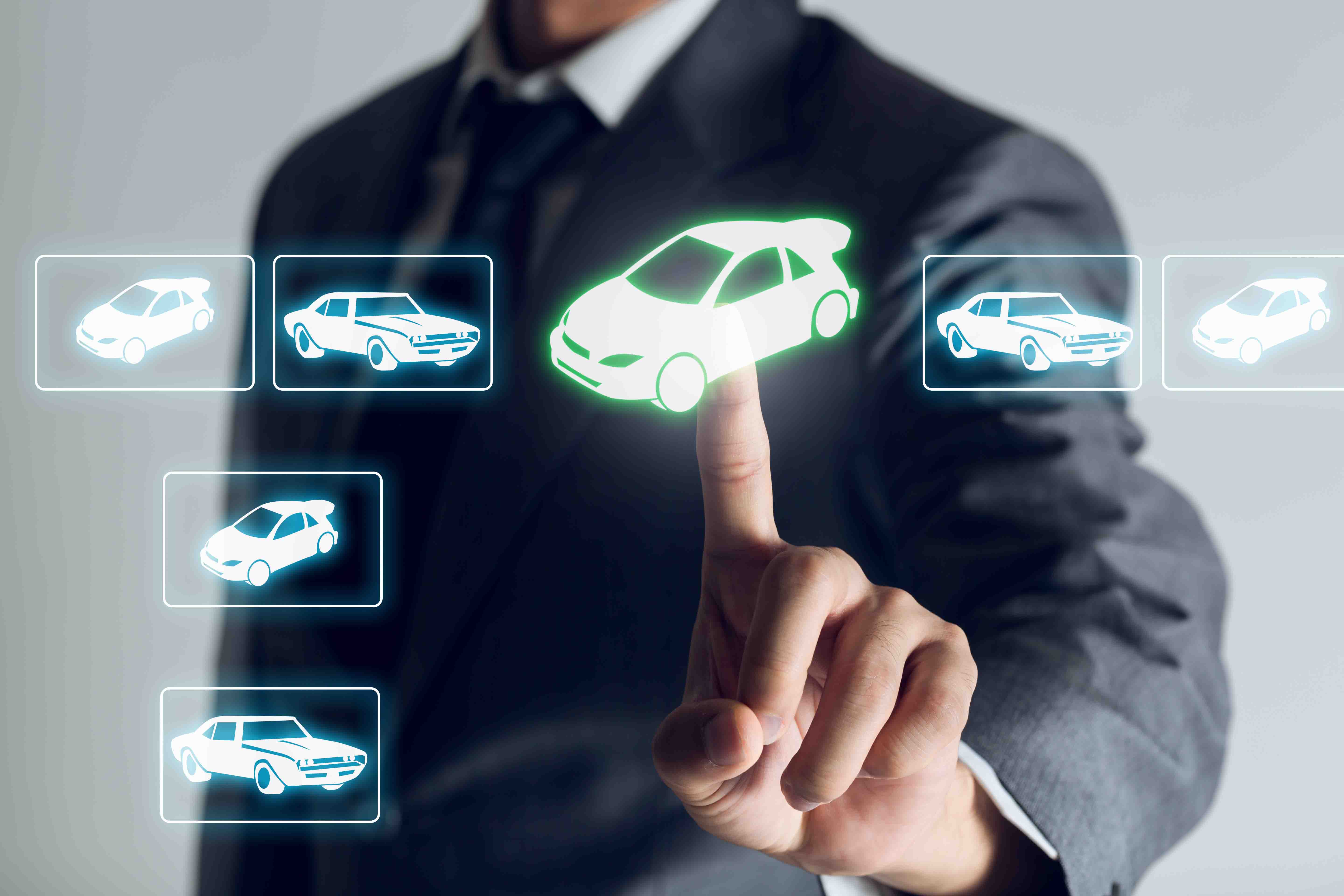The Payback on Diesels
I put three all-new diesel models through their paces and then applied the <i>Kiplinger’s</i> value test.

Profit and prosper with the best of Kiplinger's advice on investing, taxes, retirement, personal finance and much more. Delivered daily. Enter your email in the box and click Sign Me Up.
You are now subscribed
Your newsletter sign-up was successful
Want to add more newsletters?

Delivered daily
Kiplinger Today
Profit and prosper with the best of Kiplinger's advice on investing, taxes, retirement, personal finance and much more delivered daily. Smart money moves start here.

Sent five days a week
Kiplinger A Step Ahead
Get practical help to make better financial decisions in your everyday life, from spending to savings on top deals.

Delivered daily
Kiplinger Closing Bell
Get today's biggest financial and investing headlines delivered to your inbox every day the U.S. stock market is open.

Sent twice a week
Kiplinger Adviser Intel
Financial pros across the country share best practices and fresh tactics to preserve and grow your wealth.

Delivered weekly
Kiplinger Tax Tips
Trim your federal and state tax bills with practical tax-planning and tax-cutting strategies.

Sent twice a week
Kiplinger Retirement Tips
Your twice-a-week guide to planning and enjoying a financially secure and richly rewarding retirement

Sent bimonthly.
Kiplinger Adviser Angle
Insights for advisers, wealth managers and other financial professionals.

Sent twice a week
Kiplinger Investing Weekly
Your twice-a-week roundup of promising stocks, funds, companies and industries you should consider, ones you should avoid, and why.

Sent weekly for six weeks
Kiplinger Invest for Retirement
Your step-by-step six-part series on how to invest for retirement, from devising a successful strategy to exactly which investments to choose.
Would you brew a cup of joe with a filter that spent time on a tailpipe? I wouldn’t either, but that’s the premise of a video on Volkswagen’s blog “TDI Truth & Dare.” A snowy-white coffee filter attached to a 2009 Touareg 2 TDI (turbocharged direct injection) diesel’s backside remains pristine, while a filter that’s connected to an old diesel model turns black. The message: Diesel isn’t dirty anymore.
Gasoline-electric hybrids -- and the soon-to-come plug-in hybrids -- still get most of the green ink, but clean diesels are vying for environmental street cred of their own. What skeptics may not know is that unlike the smoky, noisy diesels of the early ‘80s, today’s diesels are as clean as gasoline engines. The emissions rules that took effect two years ago forced manufacturers to retool their diesels to reduce smog-forming nitrogen oxides and soot. The new 2009 models meet California’s strict emissions standards and can be sold in all 50 states. In fact, diesels emit about 20% less carbon dioxide than gasoline engines do. And because diesel engines don’t have to be as large as gas engines to generate the same power, diesels are up to 40% more fuel-efficient.
The Price is Almost Right.
To boost sales, diesels have to overcome more than an image problem. You’ll pay more for a diesel model than its gasoline-engine sibling, mostly because of the complex antipollution hardware and limited sales in the U.S. The premium ranges from $1,500 on Mercedes-Benz’s M-Class and R-Class diesels to $4,000 on the Audi Q7 TDI. The seven-seat Mercedes GL320 BlueTEC is a rarity – it’s $1,000 cheaper than the gas-engine model.
From just $107.88 $24.99 for Kiplinger Personal Finance
Become a smarter, better informed investor. Subscribe from just $107.88 $24.99, plus get up to 4 Special Issues

Sign up for Kiplinger’s Free Newsletters
Profit and prosper with the best of expert advice on investing, taxes, retirement, personal finance and more - straight to your e-mail.
Profit and prosper with the best of expert advice - straight to your e-mail.
Until recently, diesel fuel cost more than gasoline. But in early June, the national average price for a gallon of diesel was almost 20 cents less than for regular gasoline. If you hold on to a diesel vehicle for five years (the typical ownership period), with diesel cheaper than gasoline, you’ll likely recoup the extra cost of the vehicle with savings at the fuel pump. Plus, tax credits are available for diesels; credits for the 2009 models range from $900 to $1,800.
Testing The New Models.
Other than heavy-duty trucks, all diesels currently for sale in the U.S. are made by German car companies, which already sell large numbers of diesels throughout the world. The lineup consists mostly of SUVs, but more sedans are coming. Mercedes-Benz’s 2010 E350 BlueTEC will arrive next March, and an Acura TSX diesel is in the works.
I put three all-new diesel models through their paces and then applied the Kiplinger’s value test. Other than labeling and a different feel as you accelerate, you’d be hard-pressed to tell the difference between the diesel and the gasoline model.
The sticker price of the BMW 335d is $44,725, or $1,700 more than the gasoline-engine 335i. The 335d’s 425 pound-feet of torque (compared with the gas engine’s 300) sent me screeching off the line. But even with aggressive driving, I easily achieved the Environmental Protection Agency rating of 27 miles per gallon in combined city and highway driving. If you drive 15,000 miles a year at current fuel prices, you’ll save $755 annually compared with the gas-engine 335i. A $900 tax credit also helps. The BMW X5 xDrive35d got just over 28 mpg on a road trip, beating the EPA highway rating of 26 mpg (city is listed as 19 mpg). You could save $643 a year in fuel costs over the gasoline-engine X5 30i, and there’s a $1,800 tax credit. But the sticker price of $52,025 carries a premium of $3,700 over the already pricey X5 30i.
When you see numbers like 30 mpg city and 41 mpg highway, you probably think “hybrid.” But that’s the fuel economy of the Volkswagen Jetta TDI, the only diesel in the bunch that isn’t in the luxury price range. The Jetta TDI starts at an easy-to-take $22,270. The premium over the gas-engine Jetta SE is $2,175, but you get a $1,300 tax credit and would spend $525 a year less on fuel than with the Jetta SE.
Profit and prosper with the best of Kiplinger's advice on investing, taxes, retirement, personal finance and much more. Delivered daily. Enter your email in the box and click Sign Me Up.

-
 Betting on Super Bowl 2026? New IRS Tax Changes Could Cost You
Betting on Super Bowl 2026? New IRS Tax Changes Could Cost YouTaxable Income When Super Bowl LX hype fades, some fans may be surprised to learn that sports betting tax rules have shifted.
-
 How Much It Costs to Host a Super Bowl Party in 2026
How Much It Costs to Host a Super Bowl Party in 2026Hosting a Super Bowl party in 2026 could cost you. Here's a breakdown of food, drink and entertainment costs — plus ways to save.
-
 3 Reasons to Use a 5-Year CD As You Approach Retirement
3 Reasons to Use a 5-Year CD As You Approach RetirementA five-year CD can help you reach other milestones as you approach retirement.
-
 10 Things You Should Know About Buying a Car Today, Even if You've Bought Before
10 Things You Should Know About Buying a Car Today, Even if You've Bought BeforeIf buying a car is on your to-do list, and it's been a while since you went shopping for a new one, this guide will help avoid any nasty shocks in the showroom.
-
 Get the Best Car Deal in Retirement: Here's the Trick
Get the Best Car Deal in Retirement: Here's the TrickPlanning on shopping for a new car this Labor Day weekend? Here’s how to haggle for a better price, even though you're retired.
-
 7 Gas-Saving Tips That Actually Work
7 Gas-Saving Tips That Actually WorkThese are gas-saving tips that will actually work for you and your car this year.
-
 Want to Lease an EV? The Tax Credit 'Loophole' for That Is Going Away Soon
Want to Lease an EV? The Tax Credit 'Loophole' for That Is Going Away SoonTax Credits If you are deciding whether to lease or buy an electric vehicle, here is what you need to know about how the EV lease tax credit works now that it will be eliminated under Trump's new tax law.
-
 Car Buying in a Topsy-Turvy Market
Car Buying in a Topsy-Turvy MarketYou need a new car? Good luck with that! What should you do? We've got some answers.
-
 Watch Out for Flood-Damaged Cars from Hurricane Ian
Watch Out for Flood-Damaged Cars from Hurricane IanBuying & Leasing a Car In the wake of Hurricane Ian, more flood-damaged cars may hit the market. Car prices may rise further because of increased demand as well.
-
 Car Buyers: The 3-Day Grace Period Is Just a Myth!
Car Buyers: The 3-Day Grace Period Is Just a Myth!Buying & Leasing a Car Many car buyers think they have three days after making a purchase to return a car. Here’s where they’re going wrong, and what they should do instead to get a decent used car.
-
 PODCAST: Car-Buying in an Inflated Market with Jenni Newman
PODCAST: Car-Buying in an Inflated Market with Jenni NewmanBuying & Leasing a Car With cars both scarce and expensive these days, what to do if you want – or need – a new ride? Car-buying strategist Jenni Newman of Cars.com shares some tips. Also, more on the magical 9% savings bond.